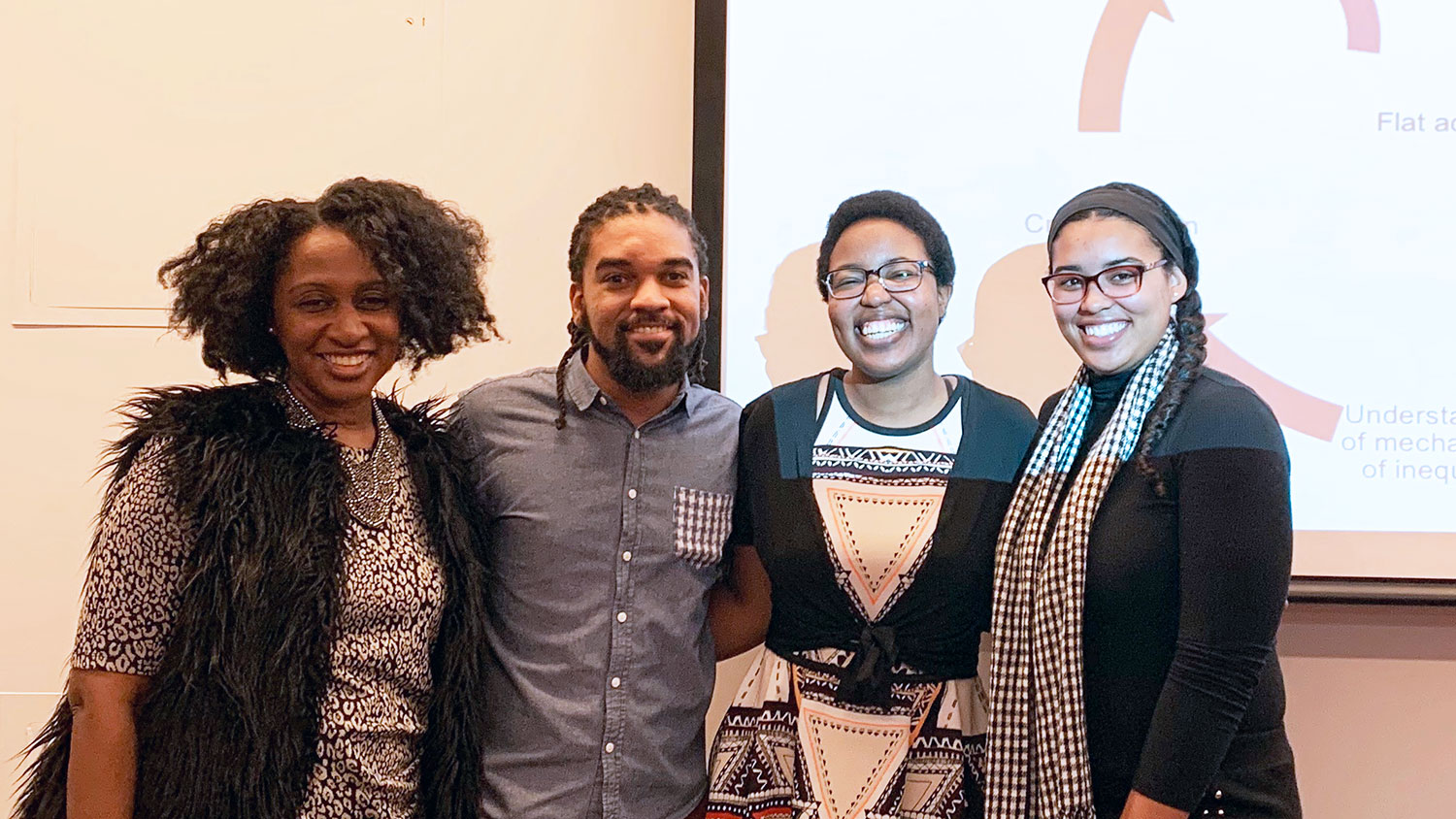
Christy Byrd, assistant professor of teacher education and learning sciences and OIED faculty fellow, gave a presentation titled, “Building Campus Climates for Thriving, Not Just Surviving” at the second lunch and learn in a three-part series to facilitate staff engagement with a new assessment model on November 13, 2019, hosted by the Office for Institutional Equity and Diversity (OIED).
Early in the presentation, Byrd grounded attendees with an understanding of campus climate by stating, “Climate is everyone and we all have the power to affect the climate while being affected by it.” She presented developmental models conceptualizing how individuals are socialized into the meaning and significance of race and culture, which included a review of different sites of socialization, from peer interactions to institutional policies. In particular, she asked attendees to think about the messages, values and norms conveyed by an institution’s response to climate and diversity issues. These responses, Byrd continued, could contribute to challenges facing underrepresented students by producing cultural mismatch, or contradictions between institutional norms and the student’s cultural upbringing.
Byrd touched on ethnic-racial socialization and critical consciousness before introducing attendees to the TIDE developmental cycles model. While critical consciousness describes the experience of learning about inequality in society, Byrd’s TIDE model attempts to explore the cyclical process of gaining awareness of social inequalities and taking different kinds of action. The model made a distinction between flat action and critical (effective) action, with the latter only possible by moving past awareness of inequality to understanding the mechanisms of inequality. Facilitating that understanding for members of the campus community, especially for those experiencing cultural mismatch, is where OIED plays a key role. OIED staff were encouraged to be intentional about alignment between their unit’s values, goals, methods and assessment practices, which could ensure programs and services are designed to motivate movement toward critical action and institutional transformation. “What do you want students to know?” she asked. “And how do you measure what they know?”
The final lunch and learn will take place from 12:00 – 1:30 p.m. on December 11, 2019 in Talley Student Union, Room 3220. OIED will be joined by Natalia Lopez, data and visualization librarian with NC State Libraries, for a workshop on novel ways to report assessment data. OIED staff and members of the campus community are invited to attend.
John Pierre Craig is a second-year master’s student in higher education administration and a graduate intern in the Office for Institutional Equity and Diversity. He is also graduate services coordinator in the Department of Mathematics.